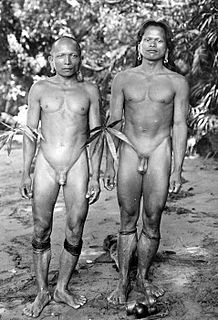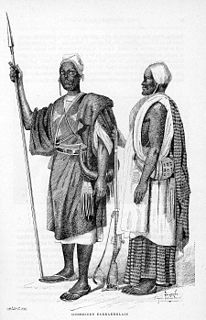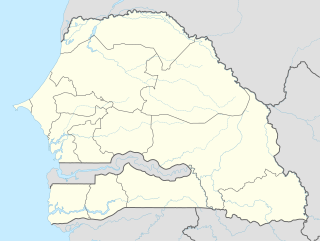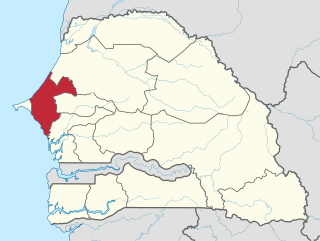
Female genital mutilation (FGM), also known as female genital cutting and female circumcision, is the ritual cutting or removal of some or all of the external female genitalia. The practice is found in Africa, Asia and the Middle East, and within communities from countries in which FGM is common. UNICEF estimated in 2016 that 200 million women living today in 30 countries—27 African countries, Indonesia, Iraqi Kurdistan and Yemen—have undergone the procedures.

The terms genital modification and genital mutilation can refer to permanent or temporary changes to human sex organs. Some forms of genital alteration are performed on adults with their informed consent at their own behest, usually for aesthetic reasons or to enhance stimulation. However, other forms are performed on people who do not give informed consent, including infants or children. Any of these procedures may be considered modifications or mutilations in different cultural contexts and by different groups of people.

The Soninke are a West African ethnic group found in eastern Senegal and its capital Dakar, northwestern Mali and Foute Djalon in Guinea, and southern Mauritania. They speak the Soninke language, also called Maraka language, which is one of the Mande languages.

Molly Melching is the founder and Creative Director of Tostan, a non-governmental organization (NGO) headquartered in Dakar, Senegal whose mission it is to empower African communities to bring about sustainable development and positive social transformation based on respect of human rights. Tostan and Melching have gained international notice for their work with partner communities to encourage the abandonment of female genital cutting and child/forced marriage in Senegal, and other countries across West and East Africa.

Tostan is a US-registered 501(c)(3) international non-governmental organization headquartered in Dakar, Senegal. The organization’s mission is “to empower communities to develop and achieve their vision for the future and inspire large-scale movements leading to dignity for all” in several West African countries, including Senegal, Guinea, Guinea-Bissau, The Gambia, Mali, and Mauritania.
The Inter-African Committee on Traditional Practices Affecting the Health of Women and Children (IAC) is a non-governmental organization (NGO) which seeks to change social values and raise consciousness towards eliminating female genital mutilation (FGM) and other traditional practices which affect the health of women and children in Africa.

There is a widespread view among practitioners of female genital mutilation (FGM) that it is a religious requirement, although prevalence rates often vary according to geography and ethnic group. There is an ongoing debate about the extent to which the practice's continuation is influenced by custom, social pressure, lack of health-care information, and the position of women in society. The procedures confer no health benefits and can lead to serious health problems.
Malicounda Bambara is a village in the M'bour Department of the Thiès Region in western Senegal, located approximately 85 km from the Senegalese capital of Dakar. Founded in 1902 by migrants from neighboring Mali in search of arable land, today the village counts ethnic bambaras, sarakolés, wolofs and socés among its population. Malicounda Bambara is especially notable for being the first village in Senegal to publicly abandon the traditional practice of female genital cutting.

The Prohibition of Female Genital Mutilation (Scotland) Act 2005 is an Act of the Scottish Parliament. It extended previous legislation by also making it illegal for UK nationals to perform female genital mutilation outside the borders of the UK. There have been no known cases of girls from Scotland being sent abroad for the procedure. The Act also increased the maximum penalty from five to 14 years.

Female genital mutilation (FGM), also known as female genital cutting (FGC), is practised in 30 countries in western, eastern, and north-eastern Africa, in parts of the Middle East and Asia, and within some immigrant communities in Europe, North America and Australia. The WHO defines the practice as "all procedures that involve partial or total removal of the external female genitalia, or other injury to the female genital organs for non-medical reasons."
KMG Ethiopia, also known as Kembatti Mentti Gezzima-Tope, is an indigenous non-governmental charitable organization based in Kembata, Ethiopia, dedicated to protecting women's rights, fostering women's health and supporting the environment. Founded in 1997 by sisters Bogaletch and Fikirte Gebre, the organization has expanded across the nation.

Female genital mutilation (FGM), also known as female circumcision or female genital cutting, includes any procedure involving the removal or injury of part or all of external female genitalia for non medical reasons. While the practice is most common in Africa, Asia, and the Middle East, FGM is also widespread in immigrant communities and metropolitan areas in the United States, and was performed by doctors regularly until the 1980s.
Female genital mutilation in Sierra Leone is the common practice of removing all or part of the female’s genitalia for cultural and religious initiation purposes, or as a custom to prepare them for marriage. Sierra Leone is one of 28 countries in Africa where female genital mutilation (FGM) is known to be practiced.
Orchid Project is a British charity which works to end to female genital cutting. Orchid Project is based in London and primarily works to advocate for increased resources towards ending FGC and raising awareness about how the practice can end. They also have programmes with Tostan in West Africa, Feed the Minds in Kenya and with Senegalese musician and activist Sister Fa.

N'Guerigne Bambara or Nguerigne Bambara or Nguering is a small village in the Thiès Region in Senegal. The village is known internationally because of its early decision to renounce Female Genital Cutting.
Female genital mutilation (FGM), also known as Female Genital Cutting (FGC) in Nigeria accounts for the most female genital cutting/mutilation (FGM/C) cases worldwide. The practices is customarily a family tradition that the young female of the age 0-15 would experience. It is a procedure that involves partial or completely removing the external females genitalia or other injury to the female genital organs whenever for non-medical reasons.

Nice Nailantei Leng'ete is a Kenyan human rights activist, advocating for alternative rite of passage (ARP) for girls in Africa and campaigning to stop female genital mutilation (FGM). In her work with Amref Health Africa, Leng'ete has saved an estimated 15,000 girls from undergoing genital mutilation and for many, childhood marriages. She was named by Time Magazine in 2018 as one of the 100 most influential people in the world.
Female genital mutilation (FGM) is practised in India by some Islamic groups. The procedure is generally performed when a girl is seven years old and involves the total or partial removal of the clitoral hood. Consequences of FGM may range from discomfort to sepsis.
















